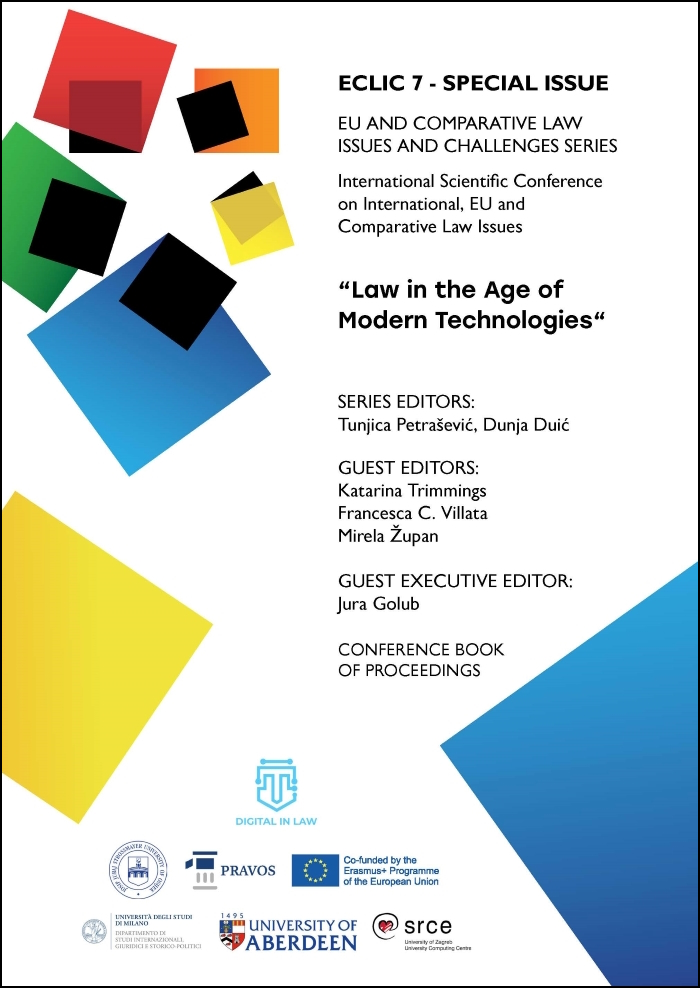PRIVATE INTERNATIONAL LAW AS A MEANS TO PROJECT EU DIGITAL VALUES ABROAD
DOI:
https://doi.org/10.25234/eclic/28266Abstract
In light of the pivotal role that new technologies play for the achievement of policy objectives, and considering their ability to negatively affect rights and freedoms in a ubiquitous manner, EU law is adopting a number of instruments to regulate those matters that are particularly influenced by digitalisation. Such instruments include substantive rules applicable to several online activities. This legislation aims at establishing an environment where digital interactions take place in accordance with fundamental rights, whose protection is enshrined within EU primary law, as well as to ensure the proper functioning of the internal market. Given the ubiquitous nature of digital technologies, and in order for these rules to be effective, their scope of application is designed to also include cases that may be strongly related to Third States. In this way, the EU aims at strengthening its digital sovereignty by creating a strong digital single market, and by guaranteeing the protection of European users, whose rights should benefit from the protection of EU substantive law even when digital activities take place abroad. Although the EU has a strong interest in ensuring a broad application of its substantive rules, the possibility for EU law to be concretely applicable abroad depends – in the first place – on the existence of jurisdictional rules specifically designed to apply to disputes that may involve parties from Third States. Nonetheless, while some of the instruments adopted in this area ensure the application of substantive rules by providing for specific grounds of jurisdiction, litigation in these matters will normally fall within the scope of Regulation (EU) n. 1215/2012, whose rules apply – in general – only when the defendant has her/his domicile in the Union. In light of these considerations, the paper will assess the coherence between the broad scope of some of the instruments that the EU has adopted (or is going to adopt) in fields strongly affected by digitalisation – such as the GDPR, as well as other EU’s initiatives pertaining to Artificial Intelligence and to digital platforms – and Regulation (EU) n. 1215/2012, in order to evaluate the ability of the latter to support the application of EU digital standards world-wide.
Downloads
Published
How to Cite
Issue
Section
License
Copyright (c) 2023 Edoardo Benvenuti

This work is licensed under a Creative Commons Attribution-NonCommercial 4.0 International License.
Authors retain the copyright on the papers published in the Journal, but grant the right of first publication to the Journal. Papers accepted for publication or already published in ECLIC of the Faculty of Law in Osijek may be published by the author(s) in other publications only with proper notice of its previous publication in ECLIC.


